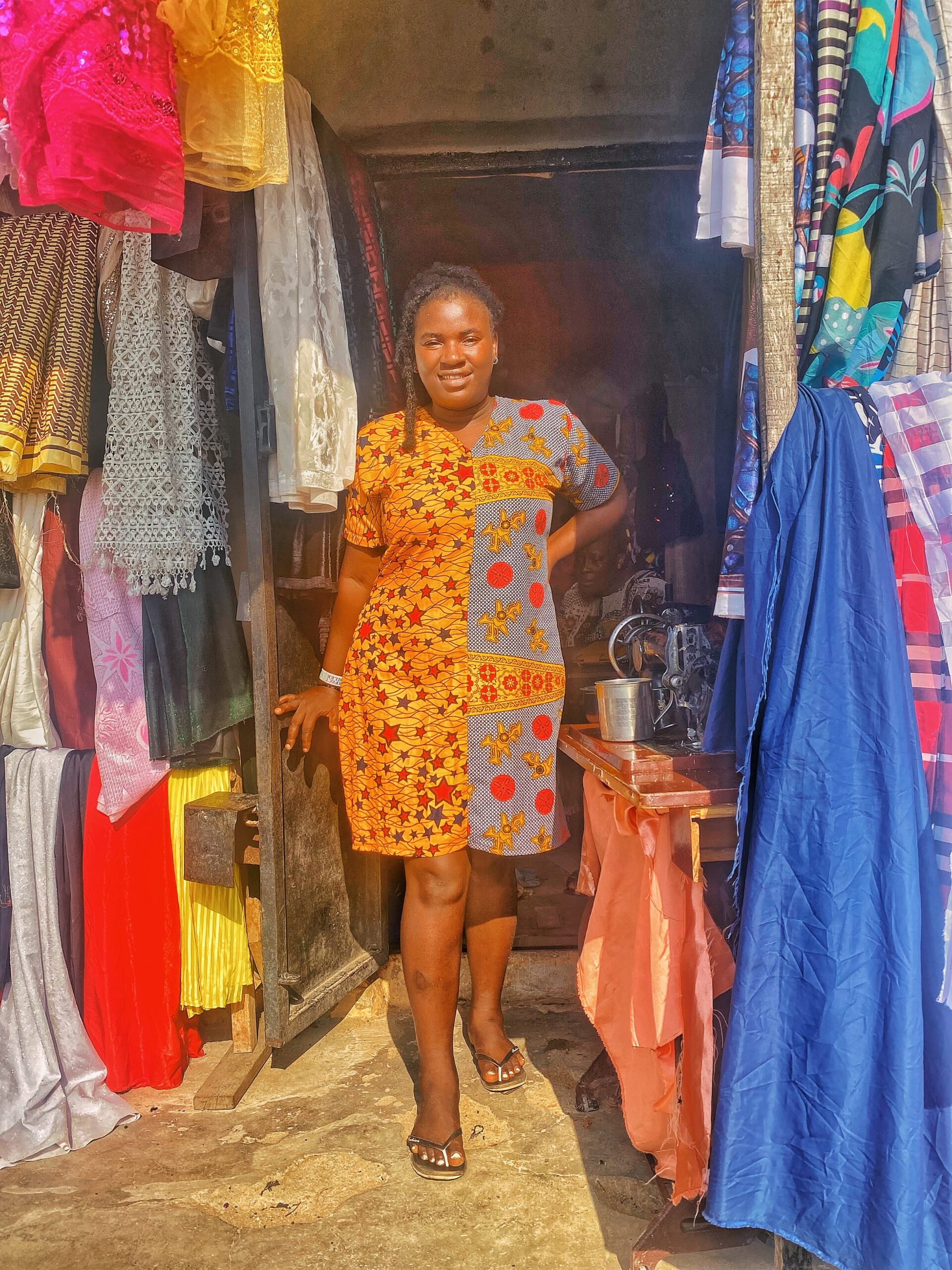Program helps Cameroonian refugee grow business and help train others
Story

The ongoing conflict in Cameroon has caused thousands of people to flee their homes to neighbouring Nigeria, including 25-year-old Vanessa Mbahwei.
“The crisis is so bad; we were always running for safety. I lost my brother to the crisis. He was shot together with three of his friends on their way to the farm. I do not even know where he was buried,” she says.
Vanessa grew up one of 13 children in a polygamous family in Batibo sub-division, Ashong Village in Southern Cameroon. Her mother has eight children.
“I did not have a very easy childhood,” says Vanessa. “Polygamy is not easy, my mother had to cater to all her children.”
In Cameroon, women traditionally look after the children and family. Many girls, like Vanessa, are forced into early marriage. When Vanessa was 17, she was married off and had to stop attending secondary school.
“I would have preferred to continue school, but I did not have a choice,” she says.
Once in Nigeria, Vanessa was introduced to Cuso International’s SKILLS project, which provides training in business development, entrepreneurship, vocational and technical skills. SKILLS, a partnership between Cuso International and the United Nations High Commission for Refugees (UNHCR), has provided support to approximately six thousand refugees and their communities in the past three years.
As a participant in SKILLS, Vanessa was able to gain the training she needed to improve her tailoring and learned how to develop a business plan.
“The experience has been great. The support has helped me start and operate my own business successfully,” says Vanessa. “I have been very fortunate and am now a trainer for the program.”
Vanessa’s goal is to have a larger training centre equipped with all the necessary equipment, such as industrial weaving machines. She wants to give her children educational opportunities she did not have. She also wants to help empower women in Cameroon, putting an end to early marriages.
“I would like the issue of forced marriage to be addressed,” says Vanessa. “Women and girls should be allowed to make the decision of marriage on their own.”